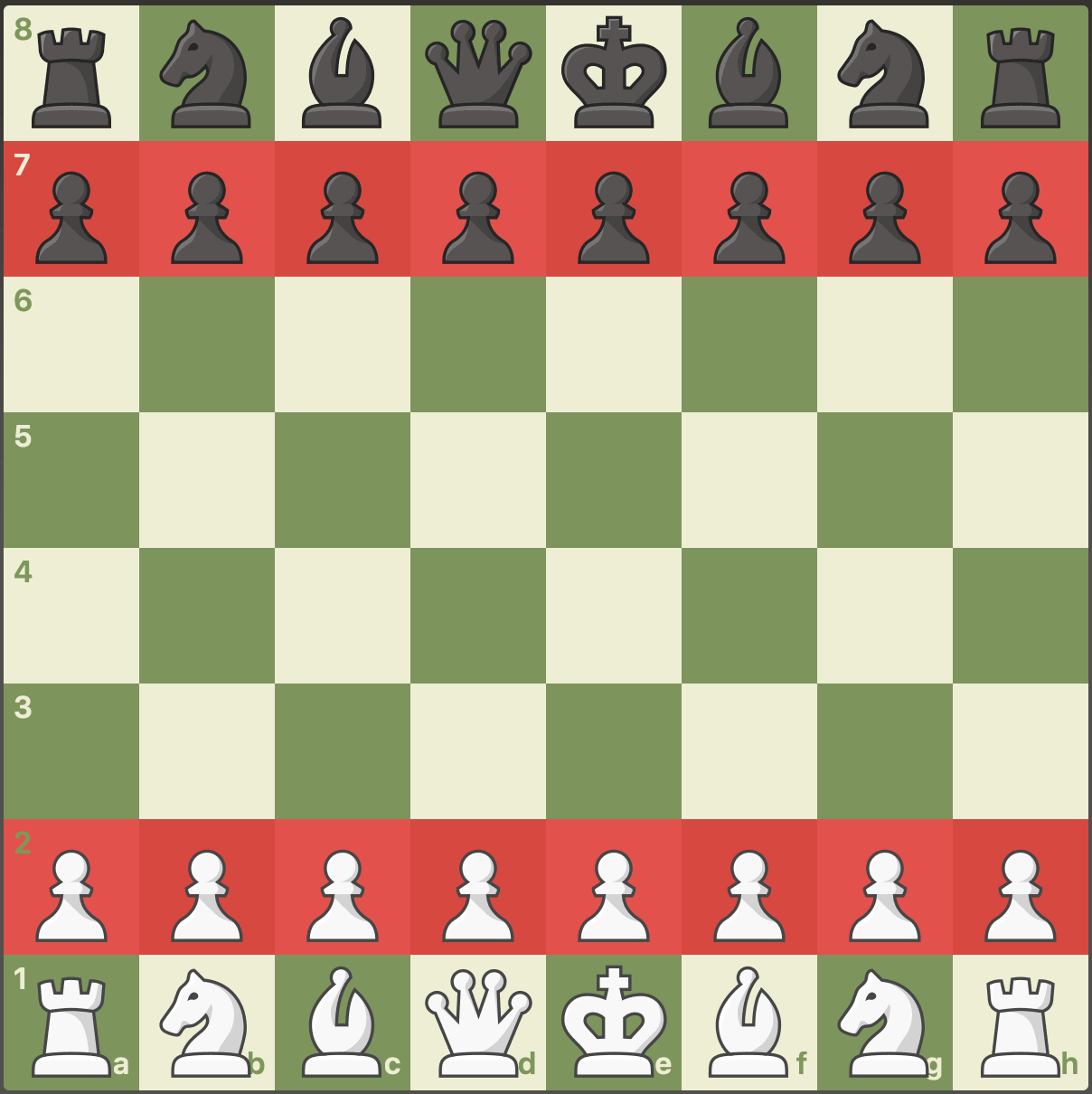Why You Must Play Chess: The Advantages of Involving in This Classic Pundit Challenge
Chess is even more than a basic video game; it functions as a strenuous mental workout that hones different cognitive skills. Players take part in critical thinking and establish analytical capacities, which can have enduring benefits in daily life. The technique required for improvement promotes perseverance and resilience. The true essence of chess exists not simply in its intellectual needs yet in the links it fosters within a neighborhood. Exploring these dimensions discloses much concerning why chess continues to be timeless.
Enhancing Cognitive Skills
Playing chess significantly improves cognitive abilities, making it an important task for individuals of every ages. The game needs strategic reasoning and insight, needing gamers to expect their challenger's relocations while developing a winning technique. This psychological workout sharpens focus and focus, essential parts of cognitive feature.

Furthermore, chess encourages creativity, motivating players to discover innovative strategies and non-traditional methods to the game. As they browse the chessboard, individuals develop perseverance and strength, vital features for cognitive development. On the whole, the diverse cognitive advantages of chess make it an enriching search, promoting long-lasting mental dexterity and intellectual engagement.
Boosting Problem-Solving Abilities
Various studies have actually shown that taking part in chess can greatly enhance problem-solving capabilities. The video game needs players to evaluate intricate settings and expect the challenger's actions, cultivating important assuming abilities. As they browse various circumstances, chess gamers establish the capacity to examine several results and make tactical decisions under pressure. This process boosts their ability to technique real-life troubles with an organized frame of mind.
Furthermore, chess advertises the identification of patterns and the application of sensible reasoning, abilities that are vital in effective problem-solving. Players find out to evaluate dangers and incentives, fine-tuning their judgment in uncertain scenarios. The recurring nature of chess play strengthens these skills, enabling people to move their boosted problem-solving capacities to scholastic and specialist contexts. Inevitably, chess functions as a useful tool for anybody looking for to hone their logical abilities and enhance their general cognitive functioning in challenging situations.
Growing Persistence and Technique
While engaging in chess can be an interesting experience, it also calls for a considerable level of patience and discipline. Gamers have to discover to very carefully think about each step, evaluating possible end results and strategies. This thoughtful technique fosters an attitude that values long-term success over instant satisfaction. In chess, hasty decisions typically lead to undesirable consequences, enhancing the importance of taking one's time to examine the board and prepare for an opponent's responses.

Self-control is further cultivated through consistent technique and research. Players commonly commit hours to boosting their abilities, studying strategies, and assessing previous games. This commitment to grasping the game imparts a sense of responsibility and perseverance, necessary qualities that extend beyond the chessboard. Inevitably, the mix of patience and self-control not just improves a gamer's chess capacities yet also adds to personal development, furnishing people with vital devices for maneuvering obstacles in numerous facets of life.
Promoting Creative Thinking and Imagination

Planning relocations involves not just reasoning however additionally the capability to prepare for a challenger's reactions, encouraging gamers to picture several paths and choices. As gamers experiment with various tactics, they learn to innovate and adapt, enhancing their imaginative problem-solving abilities.
Furthermore, the video game's complexity invites gamers to discover unique ideas and approaches, resulting in individual styles of play. This exploration nurtures a feeling of creative expression, as each player crafts their own method to obstacles on the board. Inevitably, chess becomes a canvas for creativity, enabling people to share their distinct viewpoints while creating their imaginative hop over to these guys capabilities
Building Social Connections and Community
Playing chess uses chances for people to network through tournaments and neighborhood chess clubs. These settings cultivate links among gamers, producing a feeling of recreation center around a common enthusiasm. Engaging in these activities not just enhances skills however also constructs enduring partnerships.
Networking Via Tournaments
When individuals take part in chess competitions, they typically discover themselves immersed in a lively area of like-minded people. These events offer an exceptional platform for players to build connections, share techniques, and commemorate their enthusiasm for the game. Participating in friendly competition cultivates sociability, as players from varied backgrounds collaborated to test each various other. Networking chances are plentiful, with many participants creating enduring relationships that expand beyond the chessboard. Furthermore, these events usually draw in sponsors and chess enthusiasts, even more boosting the capacity for specialist links. As gamers participate in discussions regarding techniques and experiences, they build a network that can cause future cooperations and opportunities within the chess globe and beyond.
Local Chess Clubs

Giving an Enjoyable and Engaging Obstacle
Chess uses a distinctly promoting experience that mesmerizes players of any ages, as it integrates strategic thinking with the thrill of competition. This classic game offers an engaging obstacle, encouraging individuals to think critically and creatively. Each suit unravels as a battle of wits, where gamers need to anticipate their opponent's moves while devising their own techniques.
The intellectual interaction chess offers is matched by its capability to amuse. Gamers often locate themselves submersed in the game, losing track of time as they navigate intricate placements and tactical problems (Chess). This heightened focus fosters a sense of accomplishment, particularly when a tough move leads to success
Furthermore, chess advertises social interaction, permitting players to bond over shared experiences and difficulties. The game's unlimited variants assure that no 2 sessions are alike, maintaining individuals passionate to improve their skills and methods. This dynamic mix of difficulty and satisfaction makes chess a tempting search.
Regularly Asked Questions
Can Chess Be Played Online or Only personally?
Chess can be played both online and face to face. On-line systems supply players the benefit of contending against opponents worldwide, while in-person video Clicking Here games foster social communication and physical existence, enriching the overall experience.
What Age Is Ideal to Begin Discovering Chess?
Professionals recommend that youngsters can begin discovering chess as early as age five or 6. At this age, they can grasp fundamental concepts, improving cognitive abilities while cultivating a love for visit here the game that lasts a lifetime.
Exist Chess Tournaments for Beginners?
Yes, there are chess events specifically designed for newbies. These occasions give a helpful atmosphere for amateur players to acquire experience, enhance their skills, and enjoy the affordable spirit of chess without facing innovative challengers.
For how long Does It Require To Become Proficient at Chess?
Ending up being skilled at chess typically requires regular practice over several months to years. Elements such as private dedication, previous experience, and research of techniques considerably influence the time needed to reach an experienced level.
What Resources Are Readily Available for Knowing Chess Approaches?
Various resources exist for learning chess approaches, including on-line tutorials, publications by distinguished authors, chess applications, and interactive websites. Lots of gamers also take advantage of signing up with local clubs or taking part in on-line discussion forums for real-time insights.